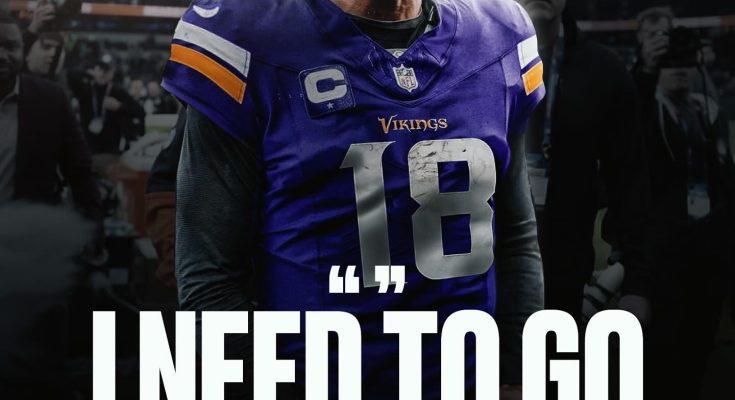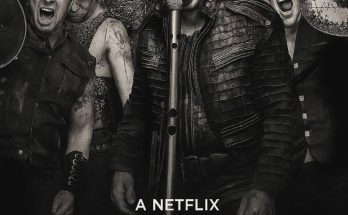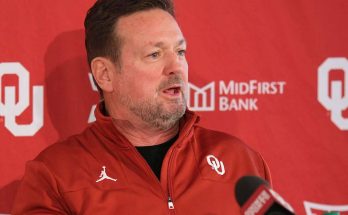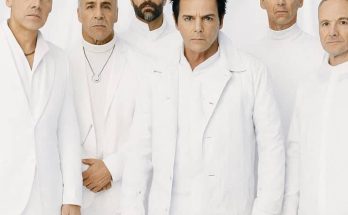Back in the fraught buildup to the 2024 NFL Draft, there unfolded a storyline that nobody could have scripted better, one that crossed divisional lines and delivered a human touch amid football’s high-stakes drama. The Chicago Bears—who had spent years searching for a franchise quarterback—held the No. 1 overall pick, and the quarterback in question was Caleb Williams, the Heisman-winning sensation out of USC. But despite that golden opportunity, Williams’ heart wasn’t fully in Chicago. Far from it. In fact, he would later tell his father with plain, desperate clarity, “I need to go to the Vikings.” The objection wasn’t casual—it laid bare his state of mind going into one of the most important junctures of his young life and career.
The catalyst was a meeting at the NFL Combine where Williams and Vikings head coach Kevin O’Connell reportedly “hit it off.” It was more than polite small talk—it was a moment of connection, a spark that sent Williams imagining what life might be like wearing Minnesota’s purple and gold. He began to fantasize: a coach who understood quarterbacks, a system that made sense, perhaps a better starting point for his pro journey. It was that visit, that interaction, that seeded a dream.
In the Williams household, the mood was tense. His father, Carl Williams, was vocal and blunt. He recalled calling Chicago “the place where quarterbacks go to die,” a line that unleashed a storm when it first surfaced—harsh words, yes, but spoken with even more force behind them by a parent navigating uncertainty and paternal protectiveness
He explored behind-the-scenes maneuvering that drew from NFL history-type plays—consulting labor lawyers, talking to Archie Manning about what Eli Manning once did, even imagining Caleb joining an alternative league like the UFL to avoid the draft and keep control of his destination. These were extreme ideas born of frustration, borne of fear for his son’s future
But Chicago, too, had an answer. Bears general manager Ryan Poles was unrelenting, adamant—and unequivocal: “We’re drafting you no matter what.” With nothing else on the table, their stance stood firm, and that sealed the draft night fate. Caleb Williams was going to be a Bear, whether he liked it or not.
So when his name was called at No. 1 overall in the 2024 NFL Draft, the inevitable reality collided with his dream. He was a Bear. The optimism that had floated months earlier, when he first met O’Connell—full of potential, full of hope—was now replaced with a mix of resolve and resignation. A few months later, in an ESPN‑published book excerpt (“American Kings: A Biography of the Quarterback”) by Seth Wickersham, the inside story broke. The public learned of the tension, of his objections, of dreaming of Minnesota—to the dismay of many Bears fans.
But Caleb didn’t try to walk back the moment. When asked about that meeting and those feelings, he didn’t dance. “I had a good visit at the other place—Minnesota—with Kevin O’Connell,” he said, referencing O’Connell’s recent Coach of the Year award and strong staff. Then he doubled down: “I wanted to come here [Chicago], and be the guy and be a reason why the Chicago Bears turn this thing around.” That statement was more than PR—it felt like a decision, an acceptance, a kind of ownership. (SI)
By season’s end of his rookie year, the Bears had endured chaos—coaching firings, a 10-game losing streak, organizational upheaval. Williams had put up respectable numbers—3,541 passing yards, 20 touchdowns, six interceptions—but the team went 5–12 and barely survived. His rookie season was a brutal crash course in NFL reality.
Then came the 2025 season opener—Monday Night Football, Soldier Field, Bears versus that divisional rival Williams had once dreamed of playing for: the Vikings. It was poetic, loaded with narrative electricity. And so it was that Williams, following those pre‑draft machinations and revelations, now stood once again across from Kevin O’Connell, J.J. McCarthy, and a Vikings team filled with its own burgeoning optimism.
The game unfolded like an NFL screenplay. Caleb Williams came out strong—he led a crisp opening drive, completing his first 10 passes, capped by a rushing touchdown. He looked sharp, connected his early throws, and showed the kind of command fans had hoped for since his arrival. Yet as the night wore on, the Vikings rallied. Their rookie quarterback J.J. McCarthy made his own headlines, leading a 21‑point fourth quarter and sealing a 27–24 comeback win. Williams finished with 210 passing yards, a touchdown pass, a rushing score, but the Bears fell short
For Williams, it was the third time facing Minnesota—third time he’d lost. And yet, it was the toughest, most meaningful of all. The destination he once wanted so badly had beaten him—and his Bears—on the biggest stage. The emotional resonance would not have been lost on him, or anyone watching.
Looking back to that moment at the end of one of those games in 2024, O’Connell met Williams on the field, drew him close, and offered a quiet, heartfelt message: “Keep going… hell of a player… it sucks that I have to go against you for a while.” For one brief moment there was respect, empathy, even camaraderie. That was the sentiment he delivered—something far removed from rivalry, more rooted in admiration for a young talent.
In the aftermath, as reports swirled and fans debated, Williams tried to shift the narrative. He publicly reaffirmed his commitment to Chicago, saying he “loves being here,” honors the opportunity to turn this franchise around, and makes his own decisions. He gently distanced himself from his father’s more pointed objections, while those words continued to reverberate in headlines and conversations.
Now, in 2025, Williams enters his second year amid new leadership. Coach Ben Johnson is in place, the offense has new direction, and Williams himself must navigate a lingering question: can he fully command this team he was forced to join? Can he transform promise into performance, adversity into ownership, baggage into motivation?
And on this night, after another loss to the Vikings, those questions feel heavier than ever. He’s still searching for that first win against Minnesota. He’s still chasing the dream that once seemed so close—until reality said otherwise. But now it’s about aftermath, about response, about forging legacy in a sea of expectations and what‑ifs.
In the end, the story may always remember the “I need to go to the Vikings” moment—but the chapters that follow, and the ones still unfolding, will determine whether Williams becomes defined by where he didn’t want to play, or by what he accomplishes where fate did land him.



